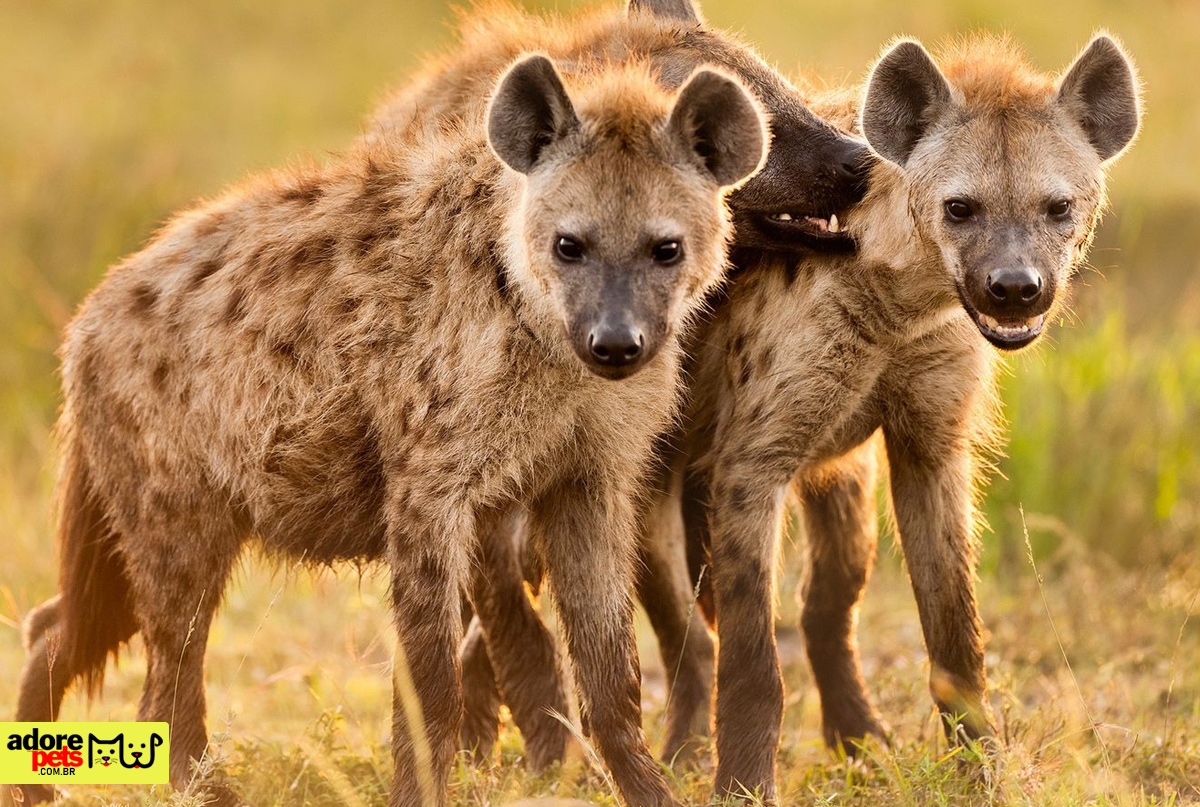However, behind the fantasy lies a cruel, complex, and challenging reality that demands a great deal of understanding, responsibility, and financial resources.
The Profile of Hyenas
Hyenas, known for their striking appearance and vocal communication through a frightening laugh, are social carnivores that live in hierarchical groups. Their personality is intriguing, ranging from playful curiosity to the instinctual nature of a cunning predator. Nevertheless, it's worth noting that their wild nature remains intact, regardless of how domesticated they may appear. Even when raised in captivity, hyenas retain their natural instincts, which can result in significant challenges for owners.
Proper Feeding
Feeding hyenas is crucial for their health and well-being. As carnivorous animals, they require a diet rich in proteins and essential nutrients. Their diet primarily consists of fresh meat and bones. Maintaining this specialized diet demands meticulous planning and considerable resources. Additionally, the legal acquisition of suitable food can pose an additional challenge in many regions.

Risks of Having a Hyena as a Pet
Keeping a hyena as a pet is a venture fraught with risks. Their wild nature can manifest in aggressive and unpredictable behaviors, posing danger to owners and other domestic animals. Furthermore, health and hygiene issues, including disease transmission, are legitimate concerns. Providing an appropriate environment for the physical and mental needs of a hyena can also present a significant logistical challenge – far from the comical and adorable portrayal in the Harley Quinn movie.
Legislation and the Prohibition of Hyena Ownership
The breeding and ownership of hyenas as pets are regulated in many jurisdictions due to the associated risks and challenges. In countries like Brazil, for instance, the Wildlife Protection Law prohibits the possession of native or exotic wild animals without legal authorization. Acquiring a hyena legally and responsibly involves stringent, time-consuming procedures and specific permits.
How to Legally Acquire a Hyena
Despite the challenges and risks, some individuals aspire to legally own a hyena. In such cases, turning to specialized shops is the only viable option. These shops adhere to regulations and offer animals from legal and authorized sources. Nevertheless, even under these circumstances, it's essential for potential owners to be fully aware of the complexities and responsibilities involved in raising a hyena.
The Responsibility of Owning a Hyena as a Pet
Having a hyena as a pet is more than just an adventure; it is a complex, demanding journey that requires a deep commitment to the animal's well-being and compliance with wildlife protection laws. While fantasies may inspire, it's important to remember that the reality of these majestic carnivores demands an exponential level of dedication, resources, and awareness to ensure a safe and respectful coexistence.
References
Smith, J. E., & Holekamp, K. E. (2013). Mortality risk and survival in wild spotted hyenas. Journal of Animal Ecology, 82(1), 450-458.
Hofer, H., East, M. L., & Campbell, K. L. I. N. (1995). Grey duiker (Sylvicapra grimmia) kills by spotted hyaenas (Crocuta crocuta) in the Serengeti: a prey or predator strategy?. Behavioral Ecology and Sociobiology, 37(2), 83-92. National Geographic (brazilian portuguese) Hienas têm má reputação, mas são os predadores mais bem-sucedidos da África.
















Add comment